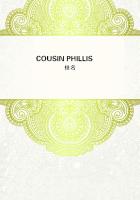T he volume before us [1] carries us back to a period which, although in time no more than a generation behind us, has become as foreign to the present generation in Germany as if it were already a hundred years old. Yet it was the period of Germany's preparation for the Revolution of 1848; and all that has happened since then in our country has been merely a continuation of 1848, merely the execution of the last will and testament of the revolution.
Just as in France in the 18th century, so in Germany in the 19th, a philosophical revolution ushered in the political collapse. But how different the two looked! The French were in open combat against all official science, against the church and often also against the state; their writings were printed across the frontier, in Holland or England, while they themselves were often in jeopardy of imprisonment in the Bastille. On the other hand, the Germans were professors, state-appointed instructors of youth; their writings were recognized textbooks, and the termination system of the whole development -- the Hegelian system -- was even raised, as it were, to the rank of a royal Prussian philosophy of state! Was it possible that a revolution could hide behind these professors, behind their obscure, pedantic phrases, their ponderous, wearisome sentences? Were not precisely these people who were then regarded as the representatives of the revolution, the liberals, the bitterest opponents of this brain-confusing philosophy? But what neither the government nor the liberals saw was seen at least by one man as early as 1833, and this man was indeed none other than Heinrich Heine. [2]
Let us take an example. No philosophical proposition has earned more gratitude from narrow-minded governments and wrath from equally narrow-minded liberals than Hegel's famous statement: "All that is real is rational; and all that is rational is real." That was tangibly a sanctification of things that be, a philosophical benediction bestowed upon despotism, police government, Star Chamber proceedings and censorship. That is how Frederick William III and how his subjects understood it. But according to Hegel certainly not everything that exists is also real, without further qualification.
For Hegel the attribute of reality belongs only to that which at the same time is necessary: "In the course of its development reality proves to be necessity." A particular governmental measure -- Hegel himself cites the example of "a certain tax regulation" -- is therefore for him by no means real without qualification. That which is necessary, however, proves itself in the last resort to be also rational; and, applied to the Prussian state of that time, the Hegelian proposition, therefore, merely means: this state is rational, corresponds to reason, insofar as it is necessary; and if it nevertheless appears to us to be evil, but still, in spite of its evil character, continues to exist, then the evil character of the government is justified and explained by the corresponding evil character of its subjects. The Prussians of that day had the government that they deserved.
Now, according to Hegel, reality is, however, in no way an attribute predictable of any given state of affairs, social or political, in all circumstances and at all times. On the contrary. The Roman Republic was real, but so was the Roman Empire, which superseded it. In 1789, the French monarchy had become so unreal, that is to say, so robbed of all necessity, so irrational, that it had to be destroyed by the Great Revolution, of which Hegel always speaks with the greatest enthusiasm. In this case, therefore, the monarchy was the unreal and the revolution the real. And so, in the course of development, all that was previously real becomes unreal, loses it necessity, its right of existence, its rationality. And in the place of moribund reality comes a new, viable reality -- peacefully if the old has enough intelligence to go to its death without a struggle; forcibly if it resists this necessity. Thus the Hegelian proposition turns into its opposite through Hegelian dialectics itself: All that is real in the sphere of human history, becomes irrational in the process of time, is therefore irrational by its very destination, is tainted beforehand with irrationality, and everything which is rational in the minds of men is destined to become real, however much it may contradict existing apparent reality. In accordance with all the rules of the Hegelian method of thought, the proposition of the rationality of everything which is real resolves itself into the other proposition: All that exists deserves to perish.















